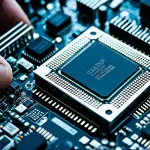Overview of UK Computing Hardware for Artificial Intelligence
The UK computing hardware landscape plays a pivotal role in advancing artificial intelligence applications. Various types of hardware contribute to this progress, including central processors, graphic processing units (GPUs), AI accelerators, and supercomputers designed explicitly for intensive AI workloads. Each hardware type addresses specific computational demands essential for training and deploying complex AI models.
In the UK, several major hardware options are either developed locally or widely available. These setups often integrate cutting-edge GPUs and AI accelerators engineered to optimize machine learning tasks, offering the necessary speed and efficiency for real-world AI applications. For instance, specialized AI chips deliver accelerated performance by executing parallel computations critical for neural network operations.
Also read : How Do Emerging Technologies Affect the UK’s Computing Hardware Market?
The UK AI infrastructure heavily depends on this robust hardware foundation to sustain innovation. High-performance computing resources enable researchers and companies to experiment with large datasets and sophisticated algorithms, which directly impacts AI breakthroughs. Investing in versatile and powerful computing hardware ensures that the UK remains competitive within the global AI landscape, fostering a thriving ecosystem where artificial intelligence solutions can flourish.
Specifications and Capabilities for AI Workloads
Understanding AI hardware specifications is essential for efficient machine learning hardware deployment. Important performance metrics include memory capacity, processing speed, and scalability. Memory size determines how large datasets and complex models can be handled simultaneously, directly affecting AI workload efficiency. Processing speed, often measured by FLOPS (floating point operations per second), defines how quickly computations occur—critical for deep learning support where massive parallel calculations are routine.
Also to read : How Can We Overcome Challenges in UK Computing Hardware Development?
Scalability allows hardware to adapt as AI demands grow, enabling system upgrades or multi-device integration without loss of performance. For machine learning and deep learning tasks, this means smoother model training and faster inference times, which improve productivity and output quality.
When compared to global AI hardware standards, top-tier devices provide significant advantages in these specifications, aligning with frameworks like TensorFlow or PyTorch. Moreover, emerging hardware solutions emphasize energy efficiency alongside raw power, addressing sustainability concerns.
In summary, selecting the right AI hardware specifications greatly influences the success of deep learning support and machine learning workloads, ensuring systems meet both current and future computational needs effectively.
Major Contributions and Infrastructure in the UK
The UK has established itself as a leader in AI research infrastructure with significant investments in powerful computing resources. Among its key assets is Cambridge-1, one of the most advanced UK supercomputers designed specifically for AI workloads. Cambridge-1 supports complex machine learning models and accelerates discovery across healthcare, climate science, and more. This supercomputer exemplifies the UK’s commitment to fostering cutting-edge AI development.
Another major asset is ARCHER2, the UK’s national supercomputing service. ARCHER2 complements Cambridge-1 by offering vast computational power for diverse scientific applications, including AI research. These UK supercomputers serve as the backbone for many projects, enabling researchers to train models faster and handle large datasets efficiently.
Investment flows from both public and private sectors bolster this infrastructure, ensuring sustained growth. Government funding combined with tech industry partnerships fuels development of AI research infrastructure that benefits academic institutions and commercial endeavors alike. Such collaboration helps maintain the UK’s competitive edge in AI innovation, supported by robust hardware platforms designed to meet evolving computational demands.
Real-World AI Applications Powered by UK Hardware
The United Kingdom is rapidly advancing AI use cases UK, with a focus on leveraging homegrown infrastructure like the Cambridge-1 supercomputer. In healthcare AI examples, Cambridge-1 enables researchers to analyze vast datasets, accelerating drug discovery and improving patient diagnostics. For instance, its powerful capabilities support life sciences innovations by running complex simulations that were previously impractical, making it a cornerstone in UK industry AI deployments.
Beyond healthcare, the financial sector increasingly relies on AI applications powered by UK infrastructure. Algorithms analyze market trends and detect fraud with greater speed and accuracy. This integration enhances operational efficiency and risk management, exemplifying how AI use cases UK span diverse economic activities.
Manufacturing and autonomous systems also benefit considerably from AI built on UK hardware. Smart factories use machine learning models to optimize production lines, reduce waste, and improve safety. Autonomous vehicles and robotics developed in the UK depend on real-time AI computations enabled by domestic data centers, underscoring the strategic role of UK-based AI resources in advancing these industry AI deployments.
The synergy between specialized hardware and AI software is propelling the UK’s position in cutting-edge applications that impact healthcare, finance, and manufacturing alike.
Challenges Facing AI Hardware Development in the UK
Understanding the hurdles impeding progress
The UK’s AI hardware development encounters several critical challenges that slow advancements and limit competitive potential. One primary obstacle is infrastructure limitations. Many research facilities and startups struggle with access to high-performance computing hardware, hindering scalability and slowing down development cycles. Without robust infrastructure, training complex AI models becomes less efficient, leading to delayed innovation.
Another major challenge is supply chain complications regarding sourcing advanced chips. Global demand strains availability, and geopolitical factors create uncertainties, causing delays and increased costs. Securing a steady, local supply of cutting-edge components remains a significant issue for UK companies aiming to build state-of-the-art AI hardware.
Furthermore, the sector faces a pronounced talent shortage, with not enough skilled professionals familiar with both AI algorithms and hardware engineering. This workforce skills gap constrains progress since developing AI hardware requires interdisciplinary expertise that is currently scarce. Addressing education and training to boost the talent pool is essential for overcoming this barrier.
Together, these infrastructure limitations, supply chain challenges, and talent shortages represent the core AI hardware challenges in the UK. Proactively tackling them is key to strengthening the nation’s position in the fast-evolving AI landscape.
Future Trends for UK Computing Hardware in AI
Exploring UK AI hardware trends reveals a strong emphasis on developing next-generation AI accelerators tailored for increasing computational demands. Researchers focus on enhancing performance and energy efficiency by designing specialized chips that handle machine learning tasks more effectively than traditional processors. These advances are driven by the need to support complex AI models used in autonomous systems, natural language processing, and advanced computer vision.
Government policies play a crucial role in shaping the AI hardware landscape. The UK government has prioritized funding initiatives that support innovation and commercialization in AI hardware, fostering an ecosystem where academic institutions, start-ups, and established firms can collaborate. Such policy initiatives aim to accelerate breakthroughs in silicon design, photonics, and quantum computing technologies essential for future accelerators.
Collaborative projects between universities and industry partners are also key to positioning the UK as a leader in AI hardware. These partnerships leverage shared knowledge and resources, paving the way for scalable solutions that address both domestic needs and global markets. By embracing these trends, the UK is well-placed to contribute significant advancements in AI hardware technologies, offering competitive advantages on the international stage.


